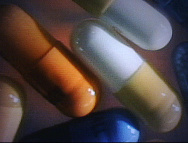 The New York Times has an important article on how Attention Deficit Disorder, often known as ADHD, has been ‘marketed’ alongside sales of stimulant medication to the point where leading ADHD researchers are becoming alarmed at the scale of diagnosis and drug treatment.
The New York Times has an important article on how Attention Deficit Disorder, often known as ADHD, has been ‘marketed’ alongside sales of stimulant medication to the point where leading ADHD researchers are becoming alarmed at the scale of diagnosis and drug treatment.
It’s worth noting that although the article focuses on ADHD, it is really a case study in how psychiatric drug marketing often works.
This is the typical pattern: a disorder is defined and a reliable diagnosis is created. A medication is tested and found to be effective – although studies which show negative effects might never be published.
It is worth highlighting that the ‘gold standard’ diagnosis usually describes a set of symptoms that are genuinely linked to significant distress or disability.
Then, marketing money aims to ‘raise awareness’ of the condition to both doctors and the public. This may be through explicit drug company adverts, by sponsoring medical training that promotes a particular drug, or by heavily funding select patient advocacy groups that campaign for wider diagnosis and drug treatment.
This implicitly encourages diagnosis to be made away from the ‘gold standard’ assessment – which often involves an expensive and time-consuming structured assessment by specialists.
This means that much of the diagnosis and prescribing happens by local doctors and is often prompted by patients turning up with newspaper articles, adverts, or the results of supposedly non-diagnostic diagnostic quizzes in their hands. There are many more marketing tricks of the trade which the article goes through in detail.
As the initial market begins to become saturated, drug companies will often aim to ‘expand’ into other areas by sponsoring studies into the same condition in another age group and treating the condition as an ‘add on’ to another disorder – each of which allows them to officially market the drug for these conditions.
However, fines for illegally marketing drugs for non-approved conditions are now commonplace are many think that these are just considered as calculated financial risks by pharmaceutical companies.
The New York Times is particularly important because it tracks the entire web of marketing activity – that aside from the traditional medical slant – also includes pop stars, material for kids, TV presenters, websites and bloggers.
It is a eye-opening guide to the burgeoning world of ADHD promotion but is really just a case study of how psychiatric drug marketing works. By the way, don’t miss the video that analyses the marketing material.
Essential stuff.
Link to NYT article ‘The Selling of Attention Deficit Disorder’
Reblogged this on The Echo Chamber.
Dr. Peter Cramer for Prozac, Dr Joseph Biedermen for over medicating children.
Ever see a pic of Cramer? Definitely a
fella you can trust…said the marketing
department twenty years ago. Neurogenesis
replacing serotonin deficits in one of his
more recent books. Now their back to
serotonin per NY Times.
Regarding ADHD, “The numbers make it look
like an epidemic. Well, it’s not. It’s
preposterous. This is a concoction to
justify the giving out of medication at
Unprecedented and unjustifiable levels.”
Dr. Keith Conners.
Biederman is one of the greatest drug pushers/intellectual whores of all time. The damage he’s doing now is nothing compared to his concocting rampant pediatric bipolar out of thin air in the 90s. At least Cramer only pushed Prozac– Biederman had little children doped up with Risperdal and Abilify.
Do you mean Peter D. Kramer?
Where was he sponsored by pharmaceuticals? He states that does not receive money from drug companies, but I am not in the US, maybe you know better. Besides, what is wrong with his books? I hope you remember them better than his name 🙂
I am concerned that the article in New York Times can increase aversion to ADHD medication. As a clinical psychologist, I work with many ADHD teenagers and to medicate or not is a very difficult choice for all parents. For severe cases of ADHD, if parents want to go medication-free, they should realize that this decision could have crucial effect on their child’s life: it is about child’s self perception, relationship with peers, grades in high school and ability to acquire education and successful career. It is easy to blame Big Pharma, but for many ADHD people medications are essential to maintain their life.
“it is about child’s self perception, relationship with peers, grades in high school and ability to acquire education and successful career.”
So is IQ but there isn’t a pill for that yet. This whole scam has got more to do with keeping psychologists in a job.
Strange also that the majority of kids with ADHD seem to be working class or blue collar and male.
Re “Strange also that the majority of kids with ADHD seem to be working class or blue collar and male.”
Never seen any statistics supporting your “working class or blue collar” statement, but it’s true regarding “male”.
So what’s your “conspiracy theory” Mr. Rowlings? That ADHD is invented by pharmaceutical companies and psychologists? And that “working class or blue collar and male” are specifically targeted? Very creative! 🙂
Reblogged and commented on this at http://random-musings-from-a-muse.blogspot.com/2013/12/fads-in-mental-diagnoses.html
One of my children has ADHD. Luckily his doctor, before prescribing any medication, suggested giving him a cup of black coffee in the mornings instead. It worked great. Between that and teaching him better organizational skills, the ADHD has become much easier for him to deal with while avoiding medication.